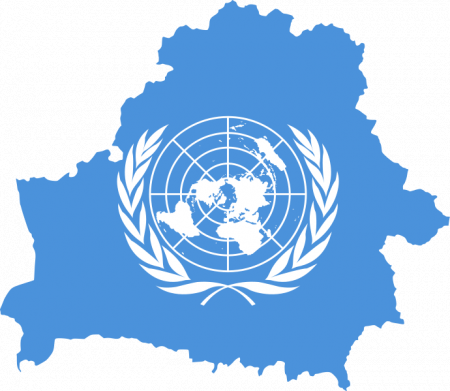The Universal Periodic Review, which Belarus is currently undergoing, is a relatively new (in force since 2006) mechanism of the Human Rights Council, assessing the extent to which each of the 192 UN member states fulfills its international human rights obligations. UPR is designed to improve the human rights situation “on the ground”, to promote the implementation of the state’s obligations in the field of human rights and to improve the capacity of the state to protect human rights. The human rights situation in each country is reviewed every five years. Universal periodic review – one of the few UN mechanisms that is recognized by the Belarusian authorities.
On 4 May the representatives of Belarus addressed the Working Group of the UPR, consisting of 47 members of the Human Rights Council. For this purpose the Belarusian Foreign Ministry has prepared a national report, submitted in March. Belarusian non-governmental organizations have also worked thoroughly: in September 2014 11 NGOs presented an alternative report (attached), as well as a number of thematic reports to the office of the UN High Commissioner for Human Rights. Following this, the Suggested recommendations for the review of Belarus at the UPR (attached) were elaborated and presented at the preliminary session in Geneva, which took place on 8-10 April, at the initiative of the international organization UPR-Info . Human rights defenders addressed the representatives of 41 national delegations of the Human Rights Council, and then were able to meet separately with some delegations in order to promote their recommendations.
During the reporting on 4 May the position of Belarus was announced by a large delegation headed by Deputy Foreign Minister Valiantsin Rybakou and including officials from the Ministry of Justice, Ministry of Health, Ministry of Labor and Social Security, Ministry of Information, Ministry of Interior, Department of Corrections and the Supreme Court. They noted the importance of the UPR procedures for Belarus, spoke about the measures taken to implement the recommendations that had been made in 2010, and answered questions from other states.
Among the topics that were raised during the interactive dialogue of the Belarusian delegation with other states, the greatest attention was paid to the issue of the death penalty, Belarus’ need to sign the Convention on the Rights of Persons with Disabilities, the Statute of the International Criminal Court and other international instruments on human rights, the problems of political prisoners, the prevention of torture, freedom of assembly and association, freedom of speech. A number of countries expressed concern about the threat of deterioration in the human rights situation during the upcoming presidential elections in 2015 and called on the Belarusian authorities to immediately release political prisoners and end the practice of persecution and pressure on independent journalists and human rights defenders.
A large number of countries urged Belarus to cooperate with the United Nations human rights institutions, including inviting special rapporteurs (especially the Special Rapporteur on human rights in Belarus), to implement the recommendations of the UN Committee on Human Rights and to present timely reports to the bodies of the United Nations.
The issue of freedom of association has also been raised: recommendations to abolish the criminalization of activities of unregistered organizations (Article 193.1 of the Criminal Code) were made and proposals for improving the legal environment for non-profit organizations were voiced.
The next stage in the second cycle of the UPR will be the formulation of a new set of recommendations to the Belarusian government in order to improve the human rights situation.
***
Belarus underwent the first cycle of the UPR in 2010. Prior to this stage the Belarusian NGOs have also prepared a report to the office of the UN High Commissioner for Human Rights, the state report was presented, consultations were held between human rights defenders and representatives of the Ministry of Foreign Affairs.
As the result of the first cycle of the UPR the international community has sent Belarus 93 recommendations to improve the human rights situation, 55 of them were supported by the country at once (in May 2010). In September 2010, another 2 recommendations were recognized as acceptable, 1 recommendation as partly acceptable, 15 recommendations announced implemented, 1 as undergoing, and 19 recommendations recognized as unacceptable.
Documents:
- UPR_Belarus_Alternative report_en
- UPR_recommendations_belarus
Related articles
Belarusian NGOs sent its report as part of the Universal Periodic Review to the UN
Human rights – the basic element of peace and security
UN Special Rapporteur called the deportation of human rights defender Tonkacheva disproportionate





